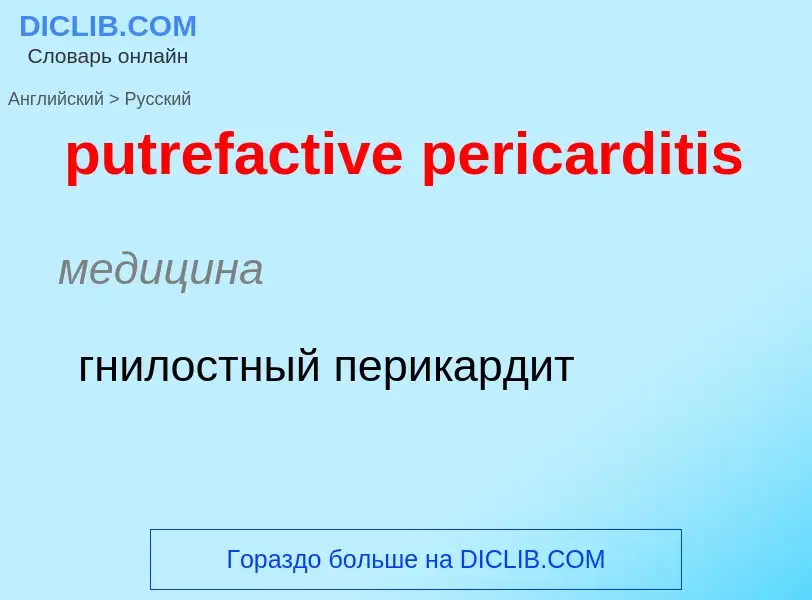Перевод и анализ слов искусственным интеллектом ChatGPT
На этой странице Вы можете получить подробный анализ слова или словосочетания, произведенный с помощью лучшей на сегодняшний день технологии искусственного интеллекта:
- как употребляется слово
- частота употребления
- используется оно чаще в устной или письменной речи
- варианты перевода слова
- примеры употребления (несколько фраз с переводом)
- этимология
putrefactive pericarditis - перевод на русский
медицина
гнилостный перикардит
медицина
констриктивный перикардит
сдавливающий перикардит
[perikɑ:'daitis]
медицина
перикардит
существительное
медицина
воспаление сердечной сумки
перикардит
Википедия
Pericarditis is inflammation of the pericardium, the fibrous sac surrounding the heart. Symptoms typically include sudden onset of sharp chest pain, which may also be felt in the shoulders, neck, or back. The pain is typically less severe when sitting up and more severe when lying down or breathing deeply. Other symptoms of pericarditis can include fever, weakness, palpitations, and shortness of breath. The onset of symptoms can occasionally be gradual rather than sudden.
The cause of pericarditis often remains unknown but is believed to be most often due to a viral infection. Other causes include bacterial infections such as tuberculosis, uremic pericarditis, heart attack, cancer, autoimmune disorders, and chest trauma. Diagnosis is based on the presence of chest pain, a pericardial rub, specific electrocardiogram (ECG) changes, and fluid around the heart. A heart attack may produce similar symptoms to pericarditis.
Treatment in most cases is with NSAIDs and possibly the anti-inflammatory medication colchicine. Steroids may be used if these are not appropriate. Symptoms usually improve in a few days to weeks but can occasionally last months. Complications can include cardiac tamponade, myocarditis, and constrictive pericarditis. Pericarditis is an uncommon cause of chest pain. About 3 per 10,000 people are affected per year. Those most commonly affected are males between the ages of 20 and 50. Up to 30% of those affected have more than one episode.






